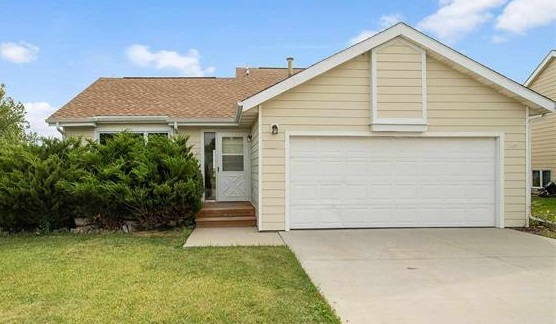When you think about selling your home, you might be debating what you should disclose. Should you write about the time you left your drain spouts up and your basement got flooded? What about that small leak in the roof that was repaired?
These are questions that many home sellers ask themselves when they sit down to fill out a disclosure form. In South Dakota, a disclosure form must be completed for every home—even if the current owner has never lived in it. There are some exceptions—estate sales, foreclosures, bank owned properties, new construction that has never been lived in, and transfers between immediate family members (including grandparents to grandchildren).
If you think this is only a real estate professional issue, think again—all for sale by owner properties must also provide a property disclosure statement. They just may not realize it. That is just one of the many reasons to use a real estate professional. But back to property disclosures…
If you are thinking about trying to hide a problem from a potential buyer, think again. Most home sales will (and should) include a home inspection. A good home inspection should pick up on any problems that may have been hidden. When that happens, a potential buyer will often think, “They should have known about that. What else are they hiding?” Being less than honest is one way to kill a deal.
If you’ve dealt with a problem and repaired it—that shows that you have taken care of your home—which is a positive for a potential home buyer. Would you rather buy a home where you know it has had some problems in the past or a home where it appears a homeowner is hiding something?
Selling a home “as-is” does not eliminate your liability from disclosing. If you know about a problem you should disclose it. Was the home a rental that you never lived in and you want to claim you didn’t know about anything in the home? Imagine someone buying the home, moving in and then having a sewer line back up. They call for service and the service technician announces to the new homeowner that they had been to the home before and reported that the sewer line needed to be replaced. Legally that’s not a good scenario….and it can and has happened.
Even if you haven’t dealt with or fixed the problem, it’s best to disclose an issue that may be lurking in your home.
If you’ve had hail damage and received money for the claim, you need to disclose that. You also need to disclose if you had not repaired the damage…or if you only repaired part of the damage. For instance, you have replaced the shingles but did not replace the gutters and downspouts because they still work in spite of the dents. You should disclose that. Otherwise, it could be uncovered during a home inspection and when a potential buyer’s insurance company looks at past claims and inspects the property.
There are some more unusual things to disclose. Did you find out that someone was murdered in your home? Did someone die by a suicide? Those tragic events are considered to “stigmatize” a property. They need to be disclosed if you find out about it within the previous year. What that means is that if you find out that someone was murdered in your home 15 years ago, but you just found out about it within the year, you are mandated to disclose it.
Though you are not required to disclose a murder or suicide that you were aware of longer than a year ago, depending on the situation you may want to disclose it anyway. Why? When people put an offer in on a home, they may begin spending some time in the neighborhood, checking out where they will live. It is likely that they may talk to a neighbor who will inform them of the history. At that point, your pending sale could be in jeopardy.
What if you think your home is haunted? Do you need to disclose that? South Dakota law does not require it; however, I would recommend that you disclose it. In the past people have tried to get out of contracts or tried to sue because they thought a home was haunted and it wasn’t disclosed. A survey that was done indicated that an overwhelming majority of people would not be concerned about buying a home that people believe was haunted. You won’t be scaring off many potential buyers (pun intended).
No one wants to end up in court over selling their home. Disclosure of any problems you are aware of will lower your legal liability and provide more protection for you and ideally your Realtor®.
In summary, if you’re not sure about disclosing something about the home you’re selling, go ahead and disclose it. You won’t have to worry about a problem being uncovered later in the process and whoever buys your home will know what they are getting and can plan to address any unresolved issues.

 Facebook
Facebook
 X
X
 Pinterest
Pinterest
 Copy Link
Copy Link
